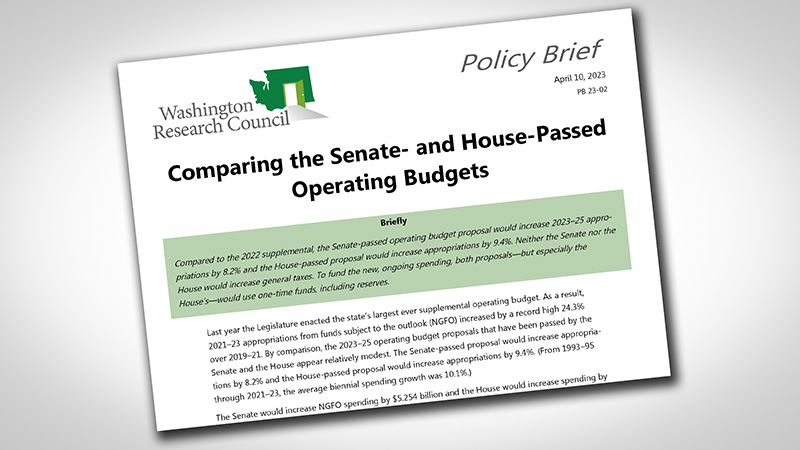
Washington Research Council
Compared to the 2022 supplemental, the Senate-passed operating budget proposal would increase 2023–25 appropriations by 8.2% and the House-passed proposal would increase appropriations by 9.4%. Neither the Senate nor the House would increase general taxes. To fund the new, ongoing spending, both proposals—but especially the House’s—would use one-time funds, including reserves.
Last year the Legislature enacted the state’s largest-ever supplemental operating budget. As a result, 2021–23 appropriations from funds subject to the outlook (NGFO) increased by a record high 24.3% over 2019–21. By comparison, the 2023–25 operating budget proposals that have been passed by the Senate and the House appear relatively modest. The Senate-passed proposal would increase appropriations by 8.2%, and the House-passed proposal would increase appropriations by 9.4%. (From 1993–95 through 2021–23, the average biennial spending growth was 10.1%.)
The Senate would increase NGFO spending by $5.254 billion and the House would increase spending by $6.003 billion in 2023–25 (these figures include both maintenance and policy level changes). With the March 2023 revenue forecast, the Legislature has $3.106 billion more to work with over the six-year budget window than anticipated when the 2022 supplemental budget was adopted.
Neither the Senate nor the House would increase general taxes.





